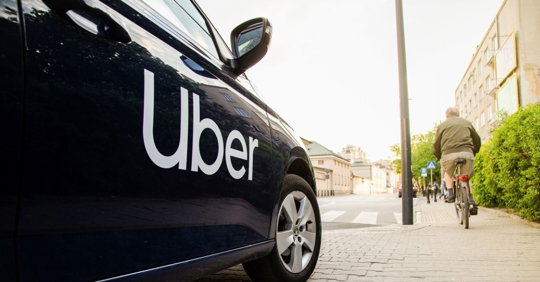Getting into a rideshare vehicle like an Uber or Lyft is supposed to be a convenient, hassle-free experience. But sometimes, things go wrong. Accidents happen, and you may find yourself injured, confused, and unsure of what to do next. If a rideshare ride turned into a nightmare, you’re not alone. The good news? You can build a strong legal case to seek compensation for your injuries—but it takes preparation and the right steps.
Why Gathering Evidence Immediately Is Crucial
When it comes to rideshare accidents, the strength of your case often depends on the evidence you can collect right after the incident. Think of this as laying the groundwork for your claim.
1. Take Photos
Your smartphone is your best tool here. Snap pictures of everything you can. Focus on damage to vehicles, your injuries, road conditions, traffic signs, and anything else that helps describe what happened. These images can provide undeniable proof of the circumstances surrounding the accident.
2. Talk to Witnesses
Were there bystanders who saw what happened? Get their names and contact information. Their statements can confirm the details and add credibility to your version of events.
3. File a Police Report
Always call the police after a rideshare accident, no matter how minor it seems. A police report is an objective account of the incident and serves as an official document that can strengthen your claim.
4. Save All Rideshare App Records
Screenshots of your Uber or Lyft ride details, from trip start and endpoints to fare summaries, can serve as important evidence. These records establish your presence in the vehicle at the time of the accident.
The sooner you start collecting evidence, the better. Waiting too long may result in fading memories or missing opportunities to document critical details.
Understanding Liability in Rideshare Accidents
Liability in rideshare accidents can be tricky because it’s not as straightforward as traditional car accidents. The first thing you should know is that multiple parties are usually involved. Figuring out who’s responsible is key to a successful claim.
Potential Liable Parties
The Rideshare Driver
If your Uber or Lyft driver made a mistake that caused the accident (e.g., speeding, distracted driving), they may be held responsible for your injuries.
Another Driver
Sometimes, it’s the fault of another driver on the road. If they caused the collision, they could be liable for your damages.
The Rideshare Company
Did you know Uber and Lyft have liability policies in place for accidents? However, their level of responsibility depends on what the driver was doing at the time of the crash.
Why “Driver Status” Matters
Rideshare companies use a three-tier system to determine coverage, and it all boils down to when the accident occurred:
- The app is off: The rideshare driver's personal insurance is responsible.
- The app is on, but no passenger is in the car: Limited rideshare company insurance may apply.
- The app is on, and the passenger is in the car (or the driver is en route for a pickup): Full rideshare company insurance coverage typically kicks in, which can include up to $1 million in liability coverage.
Understanding how these layers of liability work can help paint a clearer picture of who owes you compensation.
The Role of Insurance in a Rideshare Accident Claim
Insurance coverage is where many rideshare accident claims get complicated. Uber and Lyft have their own insurance policies, but it's key to know how to use them effectively.
Rideshare Company Insurance vs. Personal Insurance
Rideshare Company Policy:
If the driver was actively working (app on, passenger present), Uber or Lyft’s policy may cover medical expenses and property damage. This can include uninsured motorist coverage, which protects you if the at-fault driver doesn’t have enough insurance.
Driver’s Personal Insurance:
If the ride wasn’t active (the app was off), the driver’s personal auto insurance is typically responsible. However, most personal insurance policies don’t cover commercial activity, which may leave the driver (and you) in a bind if they don’t have a rideshare-specific insurance endorsement.
Coordinating Multiple Policies
After an accident, you’ll need to work with multiple insurance companies, which can feel overwhelming. The good news? A personal injury attorney knows how to coordinate these different policies to ensure you get the compensation you’re entitled to.
How a Personal Injury Attorney Can Help You
Rideshare accident claims can be complex, requiring you to juggle evidence, determine liability, and work through complicated insurance policies. That’s where a personal injury attorney comes in. Here’s how they help:
1. Expert Legal Advice
A knowledgeable attorney can clarify who’s liable, what coverage applies, and how to maximize your compensation.
2. Handling Insurance Companies
Insurance companies don’t always have your best interest at heart. Attorneys negotiate directly with them and protect your rights, so you're not pressured into accepting a lowball settlement.
3. Calculating Damages
Damages include more than just immediate medical bills. An attorney ensures you’re compensated for the full scope of your losses, including emotional distress, lost income, future medical expenses, and even pain and suffering.
4. Navigating Complexities
From multiple insurance policies to determining driver status, rideshare accident claims are more complicated than typical car accident cases. Attorneys specialize in untangling these complexities to streamline your claim process.
5. Representing You in Court
If negotiations don’t lead to a fair settlement, your attorney will represent your case in court, fighting to ensure you get the justice and compensation you deserve.
Personal Injury Lawyers
By gathering the right evidence, understanding liability, and navigating insurance policies carefully, you can start to build a strong legal case. And with a personal injury attorney by your side, you’ll have the guidance and expertise needed to secure fair compensation. Our team at Rowe Weinstein & Sohn specializes in personal injury cases involving ride-sharing accidents and is dedicated to fighting for your rights. Contact us today at (888) 482-3882 to get started.

